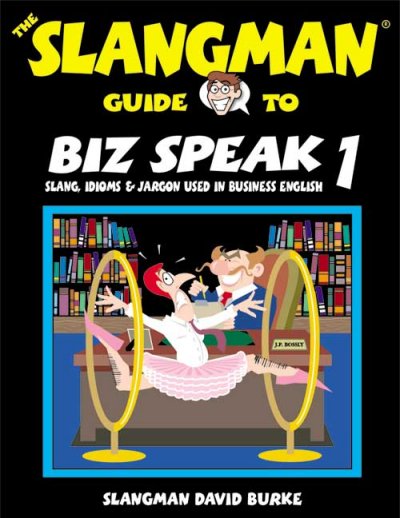- Homepage
- Transformational Leadership Courses
- Exciting Hybrid Study System by TBC-InTV, UK
- Wealthopia
- A Theory of Everything – Things I Wish I’d Known at Your Age
- Seminars & Workshops: Leadership Gold, A John Maxwell Certificate Course
- 21 Irrefutable Laws of Leadership
- Sometimes You Win Sometimes You Learn
- Becoming a Person of Influence
- Everyone Communicates, Few Connect
- Seminars & Workshops: Wealthopia Generation’s Gaining Influence and Wealth in the 21st Century
- Seminars & Workshops: Manifesting Your Corporate Success
- What people are saying about Wealthopia Generation Seminars
- Eco Vs Ego
- Win System
- The English Language Coaches of TBC-InTV ( formerly International Languages by Mary Moore, LLC
- Business English for Non Native English Speakers (BEFNNES)TB: The Slangman Guide to Bizspeak 1
- Let us Connect 1A(ECP 1A) “Wanna Talk 1”
- Let us Connect 2 (English Conversation Practice 2 -ECP2) TB:Wanna Talk 2
- TBC-InTV, UK Channel’s 21st Century Personal and Career Development HYBRID COURSE
- Let us Engage 2 (English Conversational Fluency 2) TB: Conversation Book 2
- WIN SYSTEM Story Telling Course in English for Middle School
- WIN SYSTEM Story Telling Course in English for Middle School
- Basic Public Speaking for High School Students
- Accent Neutralization
- News & Public Affairs
- Homepage
- Transformational Leadership Courses
- Exciting Hybrid Study System by TBC-InTV, UK
- Wealthopia
- A Theory of Everything – Things I Wish I’d Known at Your Age
- Seminars & Workshops: Leadership Gold, A John Maxwell Certificate Course
- 21 Irrefutable Laws of Leadership
- Sometimes You Win Sometimes You Learn
- Becoming a Person of Influence
- Everyone Communicates, Few Connect
- Seminars & Workshops: Wealthopia Generation’s Gaining Influence and Wealth in the 21st Century
- Seminars & Workshops: Manifesting Your Corporate Success
- What people are saying about Wealthopia Generation Seminars
- Eco Vs Ego
- Win System
- The English Language Coaches of TBC-InTV ( formerly International Languages by Mary Moore, LLC
- Business English for Non Native English Speakers (BEFNNES)TB: The Slangman Guide to Bizspeak 1
- Let us Connect 1A(ECP 1A) “Wanna Talk 1”
- Let us Connect 2 (English Conversation Practice 2 -ECP2) TB:Wanna Talk 2
- TBC-InTV, UK Channel’s 21st Century Personal and Career Development HYBRID COURSE
- Let us Engage 2 (English Conversational Fluency 2) TB: Conversation Book 2
- WIN SYSTEM Story Telling Course in English for Middle School
- WIN SYSTEM Story Telling Course in English for Middle School
- Basic Public Speaking for High School Students
- Accent Neutralization
- News & Public Affairs
Business English for Non Native English Speakers (BEFNNES)TB: The Slangman Guide to Bizspeak 1


Business English for Non Native English Speakers 1 (BEFNNES)
Learning Strategies:
Though this course is focused on American business idions, jargon, and slang, the instructor will incorporate the elements of English language which are grammar, phonetics, stress patterns, rhythm, and intonation. WIN system values and self-empowerment principles will also be added to this course.
Through drills, dialogue improvisation, vocabulary development exercises, group discussions, and situational learning activities, the learners will develop conversational fluency in business.
UNIT 2: Nancy Finally Got a Cush Job

Learning Outcome:
At the end of this lesson, the learners learn how to use the following idioms and jargons in their day to day office work: between jobs, hold down a job, moonlight, head hunter, landed a job, perks, pay hike, knock off early, cush job, works like a dog, in the loop, joint venture, It’s a jungle out there, jot something down, job opening, jump through hoops, kowtow, kiss up to someone, lay off, knock on doors, lead time, make a buck, let someone go, line of business, lock-stock-barrel, lock it in, ma-and-pa shop, Murphy’s law, odd jobs, off the record, need it yesterday, on lunch, no brainer, on one’s toes, on the clock, overnight something, on the job, overtime, out of the loop, outsource.
Through various classroom exercises, like dialog reading, acting out, drills, vocabulary enrichment exercises, and a lot of drills, the students master the above-mentioned idioms, plus personal empowerment skills to better not only their linguistic ability but also their attitude towards life and work.
UNIT 4: Send This to the VP's, CPA ASAP, OK? (Abbreviations, acronyms, and shortcuts)
Learning Outcome:
In this lesson, the students will learn the commonly misunderstood Abbreviations, Acronyms, and Shortcuts: CC, FYI, POT, HR, OK, memo, CFO, FedEx, CYA, CPA, ASAP, VP, ABC, aka, ATM, caps, AOL, CEO, CIA, DA, CNN, DBA, COO, e.g.ESPN, enc/enclESQ, FAQ, ER, FBI, fax, HMO, IBM, IOU, Mac, i.e., M.D., inc, misc, NBC, MO, NFL, N/A, NHL, NBA, NRA, OB-GYN, PO, OBO, OR, PI, PS, RSVP, SPCA, re, TA, RN, temp, VIP, UPS, typo
Through many learning and teaching techniques, the learners will find themselves mastering the learning tasks mentioned above. They will not only learn new vocabulary words, but they will also learn how to pronounce and speak close to native speakers. Their accent will be developed to a neutral one as well as their grammar enhanced. Above everything, they will become more fluent and more confident.
UNIT 6: Our Cutting Edge, High-Tech Line

Learning Outcome:
In this lesson, the students will learn how to express themselves using the current computer age idioms, and jargons: preferred customer, launch, rebate, stuffers, hype, demographics, cash cow, spam, skyrocketing, tie-in, hook, marketing blitz, cutting edge, line, baby boomer, big seller, backorder, blowout sale, blurb, brand, clearance sale, convenience store, closeout sale, corner the market, end-user, designer, focus group, drop, fulfillment house, generic, hi-tech, insert, health food, jump off the shelves, junk mail, market, lite, mention, mail order, move to, on the market, outlet store, push a product, rock bottom prices, plug, roll out a product, slash price, sale-a-bration, sales pitch, strip mall, sell like hotcakes, telemarketing, yuppy, test market,
Through constant and effective learning and teaching techniques such as interesting drills, dialogues, group discussions, real-life situations, the learners will find themselves mastering the learning tasks mentioned above. They will not only learn new vocabulary words, but they will also learn how to pronounce and speak close to native speakers. Their accent will be developed to a neutral one as well as their grammar enhanced. Above everything, they will become more fluent and more confident.
UNIT 8: A lot of Dealing and Wheeling (Negotiation slang and jargon)

Learning Outcome:
In this lesson, the students will practice negotiating using negotiation jargon and slang: go-between, win-win situation, came high-in, went sour, rock bottom offer, at a standstill, undercut, wheeling and dealing, hammered out a deal, knockdown, caved, drive a hard bargain, see eye to eye, walk, square deal, dickering, on a level of the file, nail down on a contract, ironclad, standoff, backdown, better, blow a deal, break down, bring something to the table, barter, come back with something, come down, call someone’s bluff, cut a deal, get in bed with someone, dicker, get the raw end of the deal, drop the price, fall through, give a little, give and take, give away the farm, lay all one’s cards on the table, go to bat for someone, ironclad, let someone walk away with something, level playing field, negotiating table, nail down the terms of a contract, no-win situation, over a barrel, party, play hard ball, sqaure deal, sickout, stick to one’s gun, strike, sit down strike, sweeten the deal, take it or leave it.
Through constant and mock negotiations, speaking about famous and powerful negotiations, coupled with teaching techniques such as interesting drills, dialogues, group discussions, real-life situations, the learners will find themselves mastering the learning tasks mentioned above. They will not only learn new vocabulary words, but they will also learn how to pronounce and speak closer to that of native speakers. Their accent will be developed to a neutral one as well as their grammar enhanced. Above everything, they will become more fluent and more confident at the negotiating table.
UNIT 8: A lot of Dealing and Wheeling (Negotiation slang and jargon)

Learning Outcome:
In this lesson, the students will practice negotiating using negotiation jargon and slang: go-between, win-win situation, came high-in, went sour, rock bottom offer, at a standstill, undercut, wheeling and dealing, hammered out a deal, knockdown, caved, drive a hard bargain, see eye to eye, walk, square deal, dickering, on a level of the file, nail down on a contract, ironclad, standoff, backdown, better, blow a deal, break down, bring something to the table, barter, come back with something, come down, call someone’s bluff, cut a deal, get in bed with someone, dicker, get the raw end of the deal, drop the price, fall through, give a little, give and take, give away the farm, lay all one’s cards on the table, go to bat for someone, ironclad, let someone walk away with something, level playing field, negotiating table, nail down the terms of a contract, no-win situation, over a barrel, party, play hard ball, sqaure deal, sickout, stick to one’s gun, strike, sit down strike, sweeten the deal, take it or leave it.
Through constant and mock negotiations, speaking about famous and powerful negotiations, coupled with teaching techniques such as interesting drills, dialogues, group discussions, real-life situations, the learners will find themselves mastering the learning tasks mentioned above. They will not only learn new vocabulary words, but they will also learn how to pronounce and speak closer to that of native speakers. Their accent will be developed to a neutral one as well as their grammar enhanced. Above everything, they will become more fluent and more confident at the negotiating table.
UNIT 10: Joe Got and ISP for Surfing the Net ( Internet E-commerce Slang and Jargon)

Learning Outcome:
In this lesson, the students will practice speaking using the internet/ e-commerce slang, and idiom: URL, hyperlink, online, email, browser, surfing the net, cyberspace, website, bumped, ISP, traffic, homepage, hits, bookmark, thumbnail, 404, address, mouse potatoes, Adobe acrobat, American online, address, attachment, bitmap, case-sensitive, chat, connectivity, cookie, dedicated line, dial-up, domain name, cyber cafe, download, e-commerce, dot, DSL, encrypted, emoticon, GIF, HTML, hypertext, InterNIC, Inter relay chat, JPEG, interactive, keyword, mailing list, lurker, moderator, multimedia, netiquette, pirate, netiquette, newsgroup, search engine, shouting, spider, sysop, thread, streaming, upload, webmaster, usenet, webring, username, IMHO, GR8, LOL, CUL8R, 2U2, 4ever, A/S/L, AKA, ASAP, b4, b4n, bbl, bbn, bfn, br, brb, btw, ciao, cya, cyl, EG, EOM, EZ, f2f, FAQ, fyi, gr8, gtg, gtgb, hak, IC, ILY, IM, IMHO, imo, l8r, lol, M or F, ROTFL, RU, S or G, S.O., thks, thx, ttfn, ttyl, tyvm, wysiwyg
Through engaging exercises, combined speaking and writing teaching techniques such as interesting drills, dialogues, group discussions, real-life situations, the learners will find themselves mastering the learning tasks mentioned above. They will not only learn new vocabulary words, but they will also learn how to pronounce and speak closer to that of a native speaker. Their accent will be developed to a neutral one as well as their grammar enhanced. Above everything, they will become more fluent and more confident at the negotiating table and at eh same time develop or enhance the value of trust in their e-commerce undertakings.
UNIT 1 : Earl Got Caught in the Carpet ( General Workplace Slang and Idioms: A-H)

Learning Outcome:
In this lesson, the students are expected to use the following idioms or jargons in their day-to-day office environment: bigwig, deadline, slave driver, get cracking, pounding the pavement, called on the carpet, work graveyard, canned, pulls his weight, paper-pusher, axe someone, back to the salt mine, back to the drawing board, blood-sweat-and tears, blue-collar worker, bring home the bacon, bring someone up to speed, bonus, boot someone, buck for a raise, buckle down, bumped up, call in sick, bust one’s buns, call it a day, call it quits, busy as a beaver, carve out a niche, copy someone on something, cut out to be something, daycare, cover for someone, deadwood, cutback, desk-jockey, don’t make waves, do sell a job on someone, the early bird gets the worm, dog eat dog world, elbow grease, fly by night operation, fence mending, get down to brass tacks, get one’s foot in the door, fill-in for someone, give someone the heave-ho, flunky, gofer, going great gun, grunt work, gold mine, hatchet man, grease monkey, hired hand, have one’s job on the line, hunt and peck typist, head and shoulders above the competition.
Through dialogues, group chats, content exercises, drills, thorough, and meaningful learning situations, the learners end up not only mastering the ten idioms above but also enhancing their conversational fluency as well as the other components of English.
UNIT 3: Chuck Wears Several Hats ( Even More General Workplace Slangs and Idioms (P-Z)

Learning Outcome:
At the end of this lesson, the learners learn how to use the following idioms and jargons in their day-to-day office work: wears several different hats, pay cut, workaholic, short-minded, making cutbacks, downsizing, rat race, come on board, breadwinner, nine-to-five, pak it in, paper trail, plug away at something, pink slip, pull some strings, put one’s nose to the grindstone, pull the plug on the project, put something or someone on the map, put somepne on hold, racket, ran off something, run the show, reinvent the wheel, sacked, shark, scuttlebutt, seat-off-the-pants operation,shoo in, skirt the issue, sick day, small time business, slack off, step out, stet, take a break, take a letter, stickle, take lunch, take a big bite out of one’s aycheck, take on, talk a good game, toe the line, throw someone out on his/her ear, trim the fat, tied up, troubleshooter, walk to, typo, walking papers, up tp par, water cooler gossip, work odd jobs, workhorse, working stiff, work one’s fingers to the bone, xerox something.
Through various classroom exercises, like dialog reading, acting out, drills, vocabulary enrichment exercises, and a lot of drills, the students master the above-mentioned idioms, plus personal empowerment skills to better not only their linguistic ability but also their attitude towards life and work.
UNIT 5: My Hard Drive Got a Virus and Crashed (Computer Slang and Jargon)

Learning Outcome:
In this lesson, the students will learn how to express themselves using the current computer age idioms, and jargons: log on, crash, computer hacker, floppy, cut and paste, clipart, hard copy, hard drive, reboot, virus, PC, bug, archive, backup, attribute, beta version, bit, boot, byte, cache, CDROM, CD, click, compact disk, computerese, data, default, corrupted, dialog box, CPU, disc, disk, dpi, down, driver, DTP, freeware, freeze, file, font, hard copy, icon, joystick, hard disc, laptop, mainframe, monitor, mouse, modern, network, peripherals, patch, plug and play, PDA, shareware, pull up a document, file to, queue, techie, techspeak, user-friendly, write-protected, vaporware, WYSIWYG
Through effective learning and teaching techniques such as drills, dialogues, group discussions, real-life situations, the learners will find themselves mastering the learning tasks mentioned above. They will not only learn new vocabulary words, but they will also learn how to pronounce and speak close to native speakers. Their accent will be developed to a neutral one as well as their grammar enhanced. Above everything, they will become more fluent and more confident.
UNIT 7: That Spot Has a Catchy Jingle

Learning Outcome:
At the end of this lesson, the learners learn how to use the following idioms and jargons in their day-to-day office work. Thus, increasing their ability to communicate effectively, welding teams, encouraging people around them to be more creative and empowered. The following advertising jargons and slang words are the focus of this lesson: circulars, catchy, run an ad, eye-catcher, spot, pulling, direct response, hard-hitting, word-of-mouth, aired, infomercial, hard-sell, cold call, jingle, e-zine, CTR, impressions, hits, hot links, advertising agency, bait and switch, angle to, banner, bleed, buyout, circulation, CPC, CPM, co-op advertising, copy, double-truck, CTR, drive times, impression, features, give-away, link, Madison Avenue, reach, PR, prime time, residuals, rough, run, SASE, slant, shoot, slot, spin, spoof, station break, storyboard, spread, sweeps, target, voice-over, tear sheet, throwaway
Through various classroom exercises, mock copywriting, advertisement critiquing, dialog reading, acting out, drills, vocabulary enrichment exercises, and a lot of drills, the students master the above-mentioned idioms, plus personal empowerment skills to better not only their linguistic ability but also their attitude towards life and work.
UNIT 9: Mr. Smith, You Have The Floor

Learning Outcome:
At the end of this lesson, the learners learn how to use the following meeting idioms and jargon in their day-to-day office work as well as business. Thus, increasing their ability to communicate effectively, welding teams, encouraging people around them to be more creative and empowered. The following advertising jargons and slang words are the focus of this lesson: circulars, catchy, run an ad, eye-catcher, spot, pulling, direct response, hard-hitting, word-of-mouth, aired, infomercial, hard-sell, cold call, jingle, e-zine, CTR, impressions, hits, hot links, advertising agency, bait and switch, angle to, banner, bleed, buyout, circulation, CPC, CPM, co-op advertising, copy, double-truck, CTR, drive times, impression, features, give-away, link, Madison Avenue, reach, PR, prime time, residuals, rough, run, SASE, slant, shoot, slot, spin, spoof, station break, storyboard, spread, sweeps, target, voice-over, tear sheet, throwaway
Through various classroom exercises, mock copywriting, advertisement critiquing, dialog reading, acting out, drills, vocabulary enrichment exercises, and a lot of drills, the students master the above-mentioned idioms, plus personal empowerment skills to better not only their linguistic ability but also their attitude towards life and work.
Unit 7: Community
Learning Strategies:
— Walk around your neighborhood. Make a list of everything you see. Then, in the journal section of your notebook, describe your neighborhood. What different kinds of houses did you see? Focus on two or three people that you saw. Describe them.
–Find places in your community where you can speak English. Go there. Introduce yourself. Speak English.
–Lesson 1: Discuss, role play, learn to use a telephone directory, recite, write a story, tell a story, practice pronunciation, write down new words, memorize word meanings about your neighborhood, your community, use of telephone, fire department, police station, post office, bank, public transportation, your car, traffic, road signs, the gas stations, laundromats, dry cleaners.
–Lesson 2: Pantomime activities in places mentioned above.
–Lesson 3: Write a short essay an emergency you had witnessed in your community.
–Lesson 4: Review
UNIT 9 : Body
Learning Strategy:
–1. Describe a recent illness you had. How did you feel? What did you do to get well?
–2. In the journal section of your notebook, write about your family’s health history. Include medical problems including accidents, or emergencies.
–Lesson 1: Participate in a class game “Follow the leader” to make the learning of different parts of the body fun.
–Lesson 2: page 162, learn vocabulary and proper pronunciation of the different parts of the parts of internal organs. Complete the chart with the correct answer.
–Lesson 3: page 152, Describe what’s happening in each picture, and pretend to call up a health clinic, hospital for a healthcare or emergency health issue.
–Lesson 4: Guess what disease each person in the picture is suffering from. share how those illnesses are cured in your country or city.
–Lesson5: Determine what kind of doctor do you need for a particular health problem you have. Write down and memorize.
–Lesson 6: Fill up a patient form in a clinic or hospital. Then, role-play a doctor visit scene.
–Lesson 7: Determine which kind of diseases or accidents need emergency attention. Roleplay calling up a hospital ambulance for an emergency.
–Lesson 8: Learn new words about tooth care and dentist. Share stories about toothache remedies in your country. Role-play a dentist visit. Share customs and traditions about wisdom tooth or baby’s first tooth.
–Lesson 9: Learn new words about veterinary medicine, their pronunciation, and their function. Share about your pets or neighbors’ pets and what problem health problems do pets create if unmanned or untrained?
–Lesson 10: Review : Solving a puzzle
Column Service Title
Column service content area
Read More